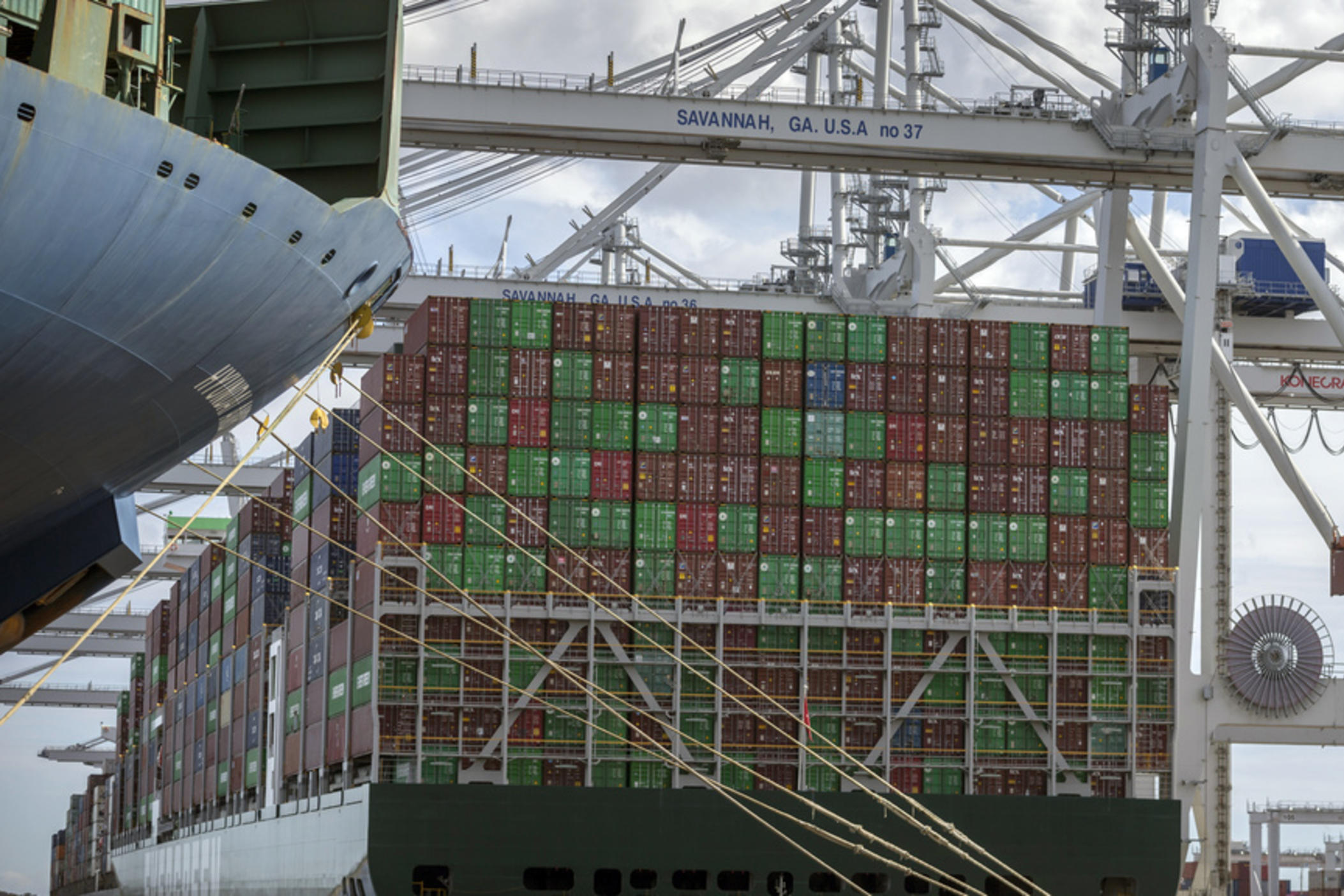Section Branding
Header Content
Georgia ports had their 2nd-busiest year despite a decline in retail cargo
Primary Content
Georgia's seaports had their second-busiest year in fiscal 2023 despite a decline in the volume of consumer goods moving across their docks as retailers with full inventories cut back their orders, officials said Tuesday.
The Georgia Ports Authority reported that the Port of Savannah handled 5.4 million container units of imports and exports in the fiscal year that ended June 30. That's down 6.7% from a year ago, when the port scrambled to keep up with a record-breaking cargo surge.
Like other U.S. ports, Savannah in fiscal 2021 and 2022 saw a flood of imports shipped in containers, giant metal boxes used to transport retail goods from consumer electronics to frozen chickens. Fueled by pent-up consumer demand following a pandemic-driven slowdown, the spending boom left retailers with excess inventories. That meant fewer orders to refill stockrooms over the past year.
"We had these two years of anomalies, but at the end of the day we have positive growth going back to the most recent pre-pandemic year," said Griff Lynch, president and CEO of the Georgia Ports Authority.
Lynch noted that last year's container volumes are still up 20% — or nearly 1 million container units — compared to fiscal 2019 before the coronavirus pandemic.
He said it's unclear how the Port of Savannah, the fourth-busiest U.S. port for cargo shipped in containers, will fare in fiscal 2024. Container volumes for June were down nearly 23%.
"We've got our customers that are still dealing with inventory issues," Lynch said, adding: "Their inventories are still high and they're coming down, but I don't think they're moving at the pace that they would have hoped."
While Georgia's container volumes dipped, the ports in Savannah and Brunswick handled a record-breaking 723,500 units of automobiles and heavy machinery units — up 18% from fiscal 2022.
Lynch attributed much of the growth to high U.S. demand for new cars following nearly two years of slowed production by automakers facing a global shortage of computer chips.
He also noted that Nissan began importing vehicles through Brunswick last fall. Nissan is expected to ship about 60,000 automobiles per year into Georgia.
The port authority's governing board is anticipating long-term growth. The completion last year of a seven-year, $973 million deepening of Savannah's shipping channel allows ships to carry more cargo without waiting for higher tides.
Meanwhile, Hyundai is building a $5.5 billion electric car plant west of Savannah. Though it's unknown whether the automaker will export any Georgia-built vehicles, Lynch anticipates an handling influx of parts and supplies.
Georgia ports have $1.9 billion in expansion projects in the works to make room for additional business.
A renovated berth at Savannah's main container terminal reopened Friday. Upgrades including larger cranes allow for loading and unloading larger ships, with the expanded berth's annual cargo capacity increased by 25%.
And Savannah's terminal 200-acre (81-hectare) Ocean Terminal, which has long moved mostly breakbulk cargo such as lumber, paper and steel, is being converted to handle cargo containers exclusively.
At the Port of Brunswick, construction is underway to add space for automobile processing as well as 122 acres (49 hectares) of new storage for new cars and trucks.
Kent Fountain, the Georgia Port Authority's board chairman, said the expansions will help the ports weather the next unexpected growth spurt like they saw in wake of the pandemic.
"GPA has always tried to have a 20% buffer, and that got evaporated during COVID," Fountain said. "We're committed as a board so that we don't get caught again."


